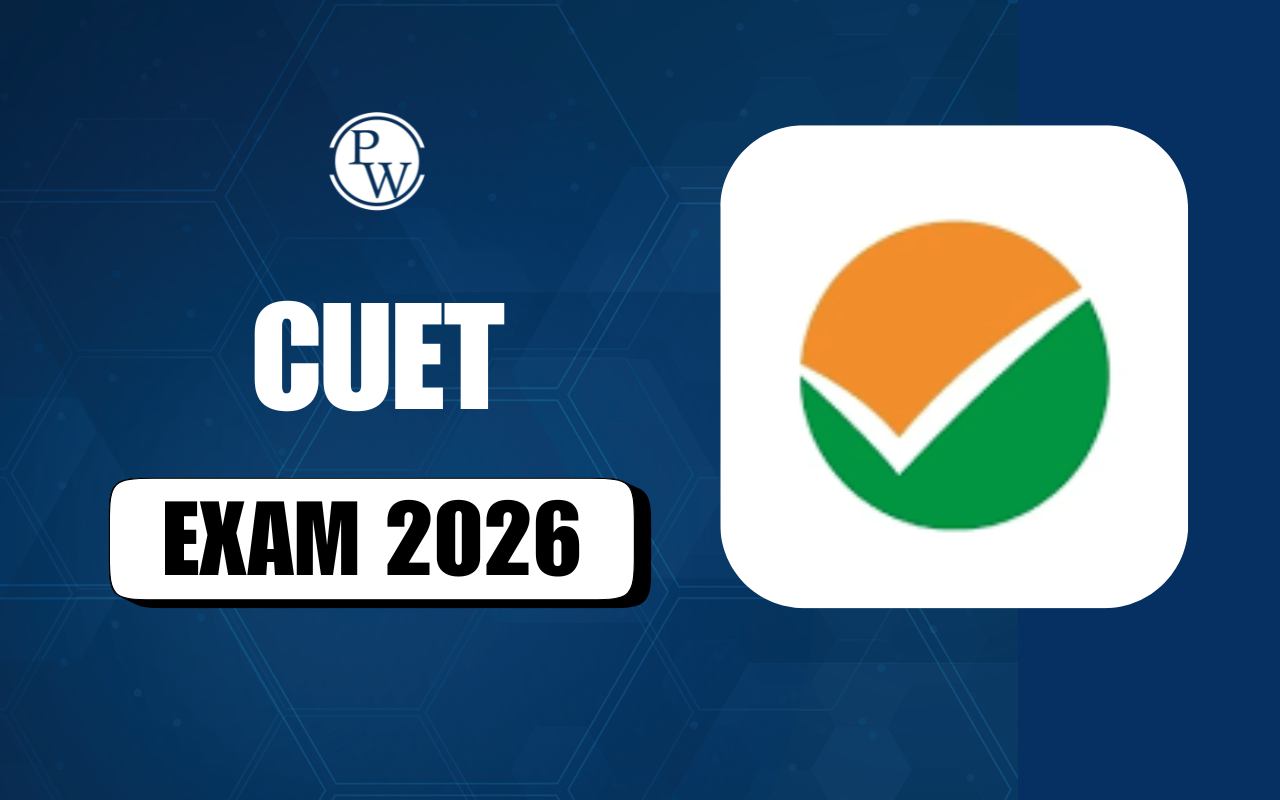
How To Prepare for CUET UG English Question Paper?: To prepare effectively for the CUET UG English Question Paper, students should focus on strengthening their reading comprehension, grammar, vocabulary, and verbal ability. Start by understanding the cuet exam pattern and syllabus thoroughly.
Regular practice of reading passages, solving previous year question papers, and taking mock tests is essential. Building a strong vocabulary through daily word lists, reading newspapers, and using apps can enhance performance. Grammar rules must be revised consistently using reliable books like Wren and Martin. Time management during preparation and in the actual exam is crucial. With consistent effort, focused revision, and smart strategy, scoring high in CUET English becomes achievable.
CUET UG English Exam Pattern 2025 (As per NTA guidelines)
Preparing for the CUET UG English question paper requires a strategic approach, focusing on understanding the exam pattern, mastering the cuet syllabus, and honing essential language skills. The English section, categorized under Section IA of the CUET exam, consists of 50 multiple-choice questions to be completed in 60 minutes, with each correct answer earning 5 marks and each incorrect response incurring a penalty of 1 mark.
|
Particulars |
Details |
|
Conducting Body |
National Testing Agency (NTA) |
|
Exam Mode |
Computer-Based Test (CBT) |
|
Language of Paper |
English |
|
Total Questions |
50 Questions (All Compulsory) |
|
Total Marks |
250 |
|
Question Type |
Multiple Choice Questions (MCQs) |
|
Duration |
60 Minutes |
|
Marking Scheme |
+5 for correct answer, -1 for wrong answer |
CUET UG English Syllabus 2025
The syllabus focuses on testing a candidate’s comprehension, vocabulary, grammar, and verbal ability. Here’s a detailed breakdown:
1. Reading Comprehension
-
Factual passages
-
Narrative passages
-
Literary passages
-
Poetic comprehension (Rare but possible)
Skills Tested: Skimming, scanning, inference, tone, theme, vocabulary in context
2. Vocabulary
-
Synonyms & Antonyms
-
One-word substitutions
-
Idioms & phrases
-
Spelling correction
-
Cloze test (fill in the blanks)
3. Grammar & Usage
-
Parts of speech
-
Tenses
-
Subject-verb agreement
-
Sentence rearrangement
-
Error spotting and correction
-
Active/passive voice
-
Direct/indirect speech
4. Verbal Ability
-
Sentence improvement
-
Para-jumbles
-
Analogy
-
Word pair relationships
How to prepare for the CUET 2025 English Test?
Step 1: Understand the CUET Exam Structure
Start by familiarizing yourself with the syllabus and exam pattern. Knowing what to expect helps you plan better and avoid surprises.
Step 2: Build a Study Schedule
Create a weekly study plan that covers all topics. Allocate time for:
-
Reading comprehension practice
-
Grammar exercises
-
Vocabulary building
-
Weekly mock tests and revision
Step 3: Strengthen Your Basics
For Grammar and Vocabulary:
-
Refer to Wren and Martin’s High School English Grammar
-
Use Word Power Made Easy by Norman Lewis
-
Practice through NCERT English books (Class 9–12)
Step 4: Practice Reading Comprehension Daily
-
Read articles, editorials (The Hindu, Indian Express), short stories
-
Summarize passages in your own words
-
Time yourself while solving comprehension passages
Step 5: Expand Your Vocabulary
-
Learn 5–10 new words every day
-
Practice using the words in sentences
Step 6: Solve CUET Previous Year Question Papers
-
Analyze past trends and difficulty level
-
Identify frequently asked topics
-
Practice at least 3–4 previous CUET English papers
Step 7: Take Full-Length Mock Tests
-
Attempt 1–2 full mock tests every week
-
Review your mistakes and revise those concepts
-
Focus on time management and accuracy
Step 8: Revise Regularly
-
Keep a revision notebook for rules, formulas, idioms, and error-prone topics
-
Revise weekly to keep the concepts fresh
CUET English Preparation for Non-Native Speakers
Preparing for the CUET English exam can feel challenging for non-native speakers, but with the right strategies and steady effort, you can perform confidently and successfully. Many students face difficulties such as slow reading speed, weak grammar, and a small vocabulary. However, a structured and consistent approach can help overcome these challenges.
1. Build a Strong Foundation in Basic English
Start with the basics to create a solid understanding of the language.
-
Learn Basic Grammar : Focus on essential grammar rules like tenses, parts of speech, subject-verb agreement, and sentence structure. Use simple and effective books like Wren & Martin's High School English Grammar and Composition.
-
Use Beginner Materials : Begin with children’s storybooks, easy English newspapers, or beginner-friendly websites to improve reading fluency.
2. Expand Your Vocabulary Step by Step
A wide vocabulary helps in both reading and writing.
-
Learn 5–10 Words Daily : Focus on word meanings, synonyms, antonyms, and example sentences.
-
Use Contextual Learning : Learn words through stories or daily articles to remember them better.
-
Focus on High-Frequency Words : Begin with commonly used words in newspapers and exam passages.
3. Improve Reading Comprehension Skills
Reading regularly will improve understanding and speed.
-
Read Everyday: Use editorials from newspapers like The Hindu or Indian Express to explore different topics.
-
Understand the Context: Focus on the meaning of the passage rather than getting stuck on difficult words.
-
Practice Skimming & Scanning: Learn how to quickly find key ideas and answers.
- Summarize Passages: After reading, try writing a short summary in your own words to boost understanding.
4. Strengthen Grammar with Daily Practice
Grammar questions can help boost your CUET score if prepared well.
-
Attempt Grammar Quizzes: Practice online or use books to test your grammar knowledge daily.
-
Identify Mistakes: Learn from your errors and try not to repeat them.
-
Write Your Own Sentences : Create sentences using the grammar rules and vocabulary you've learned.
5. Practice with Previous Papers & Mock Tests
Familiarity with the exam format builds confidence.
-
Solve Past Year Papers : Understand the question types and practice accordingly.
-
Take Timed Mock Tests: Simulate real exam conditions to improve speed and reduce anxiety.
-
Analyze Performance: Focus more on weak areas after each test.
6. Use Bilingual Resources When Needed
Sometimes learning is easier when explained in your native language.
-
Bilingual Grammar Guides : Use materials that explain English grammar using your native language.
-
Translate and Practice : Try translating English paragraphs into your language, then back into English to improve understanding.
7. Stay Consistent and Ask for Help
Regular practice is the key to improvement.
-
Follow a Daily Study Routine : Divide your time among reading, vocabulary, and grammar.
-
Join English Classes or Study Groups : Learning with others can motivate you and clear doubts.
-
Get Feedback : Share your work with teachers or friends to receive suggestions and correct mistakes.
Recommended Books for CUET UG English
Here’s a list of recommended books for CUET UG English that are widely suggested by educators and toppers to help strengthen grammar, vocabulary, comprehension, and overall language skills:
|
Book Title |
Author / Publisher |
|
High School English Grammar & Composition |
Wren and Martin |
|
Objective General English |
S.P. Bakshi (Arihant) |
|
Word Power Made Easy |
Norman Lewis |
|
CUET UG English Practice Papers |
Arihant / MTG / PW |
|
Daily Newspapers |
The Hindu, Indian Express (Editorials) |
How To Prepare for CUET UG English Question Paper? FAQs
Q.1 : What is the syllabus for the CUET UG English paper?
Q.2 : How can I improve my vocabulary for CUET English?
Q.3 : Is reading comprehension difficult for non-native speakers?
Q.4 : How important is grammar in the CUET English exam?










